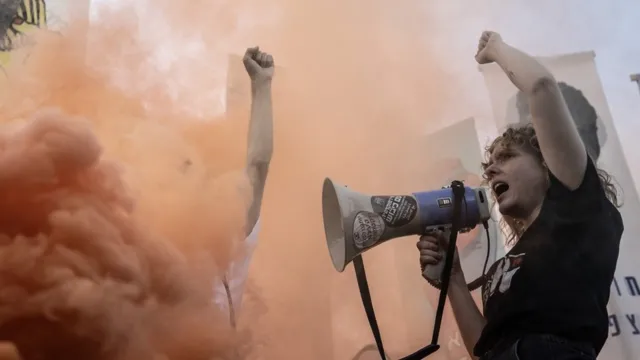A contentious judicial reform that sparked anti-Bibeau riots across the country last year was overturned by the Israeli Supreme Court. The modification would have reduced the Supreme Court’s authority to invalidate laws that it found to be unconstitutional. Its opponents claim that by undermining the legal system, it would have seriously damaged the nation’s democracy. The Netanyahu administration, which is thought to be the most right-wing in Israeli history, is facing fierce opposition. After months of internal strife, the Supreme Court decided to reverse the government’s 2023 law.
The “reasonableness” bill was signed into law by the government in July.
This eliminated the Supreme Court’s and subordinate courts’ authority to overturn government actions that they found to be “extremely unreasonable” in Israel.
Thousands of people rushed to the streets to protest the bill, demanding that Prime Minister Benjamin Netanyahu resign and that the reforms be abandoned due to the deep rift and outrage it provoked. The weekly protests, according to their organizers, are the largest public gatherings in Israel’s history.
Israel’s military capabilities were warned that hundreds of military reservists, including air force pilots, threatened to refuse to report for duty at the moment.
Eight out of fifteen justices decided against the proposal, according to a Supreme Court statement, which also stated that the legislation would have done “severe and unprecedented damage to the basic characteristics of the State of Israel as a democratic state”.
The law’s author and minister of justice of Israel, Yariv Levin, denounced the judges’ decision to overturn it as undemocratic and accused them of “taking into their hands all the powers”.
Yair Lapid, the head of the opposition, however, praised the decision, stating on X (previously Twitter) that the nation’s highest court had “faithfully fulfilled its role in protecting the citizens of Israel”.
A proponent of the law who spearheaded the massive demonstrations against it last year expressed satisfaction with the court’s decision.
In a video statement, Shikma Bressler said that “the sword of dictatorship from around our necks” had been temporarily lifted by the Supreme Court.
The Netanyahu administration implemented a number of court reforms, including the “reasonableness” law.
These would have made it easier for the Knesset (parliament) to overturn Supreme Court rulings that reviewed or invalidated laws by a simple majority of members.
In addition, the government has made an effort to eliminate the need for ministers to follow the counsel of their legal counsel and to increase its control over the appointment of judges.
According to Mr. Netanyahu, the adjustments are necessary to restore the proper balance between the judiciary and the political branch.
The decision by the Supreme Court poses a further danger to public trust in his administration. The decision, according to Mr. Netanyahu’s Likud party, went against “the will of the people for unity, especially during wartime”.
The Israeli government has been under criticism from within for what is seen as its inability to stop Hamas’s October 7 onslaught and for not having been able to free every Israeli hostage that was carried into Gaza thus far.

